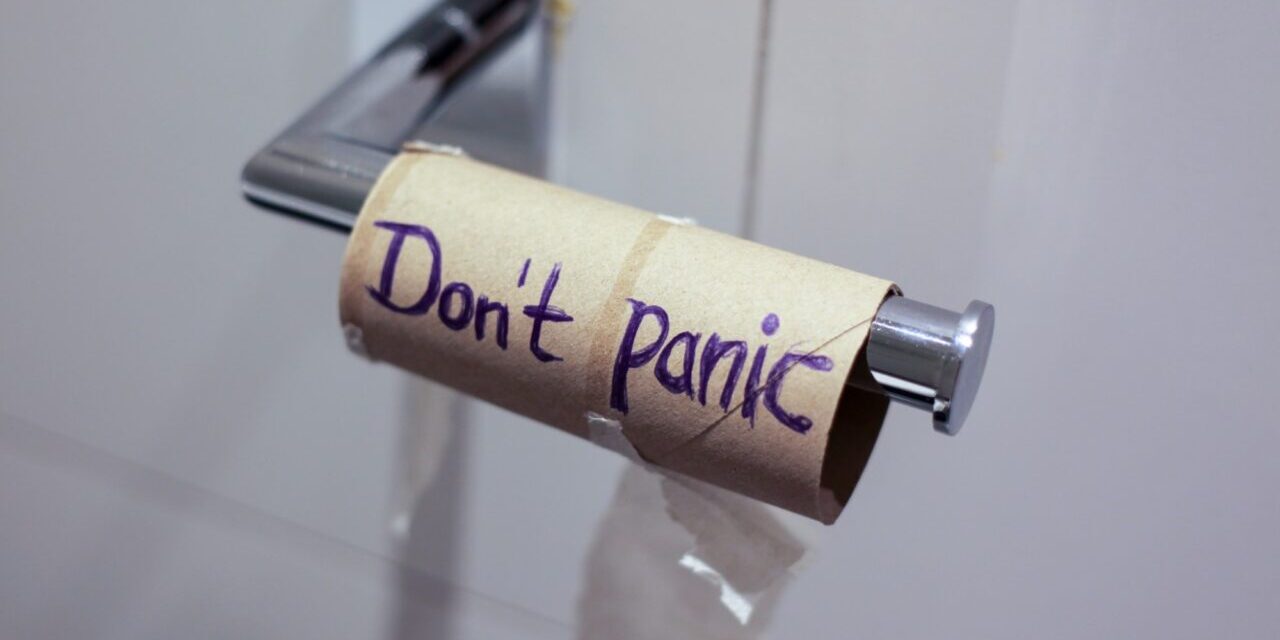Burning and Pain with Urination
You’re one of the 50-60% of women who experience this “fire in the bladder”, the common symptoms of urinary tract infection (1). But what if your doctor can’t find evidence of infection? You may be experiencing interstitial cystitis (IC) – a diagnosis that confuses the conventional health community, but naturopathic medicine is uniquely suited to both discover and relieve this mysterious illness.
Interstitial Cystitis is Not in Your Head
Unfortunately interstitial cystitis is often considered a disease in the mind, caused by underlying anxiety, depression, or stress. This is similar to other so called “psychosomatic” conditions like fibromyalgia or chronic fatigue syndrome. This is a myth, and research has shown there is more happening in the bladder than realized. Fortunately, there are naturopathic doctors paying attention and seeking care for those suffering from IC.
Leaky Bladder
Maybe you’ve heard about the “leaky gut”. Well there are many barriers in the body that serve to keep certain things out and other things in, and the bladder is one of them. When these barriers breakdown, disease happens, and there is evidence that interstitial cystitis is a barrier function disease. Bladder linings in individuals with IC are thinner, more permeable, and consist of more pain-sensing nerve fibers than people without IC (2).
4 Naturopathic Treatments for Interstitial Cystitis
1. Eliminate aggravating foods
One of your bladder’s main jobs is to remove certain substances from the body. Imagine red urine after eating beets or smelly urine after eating asparagus. A bladder suffering from interstitial cystitis is irritated and exposed. Contact with some foods and beverages may result in additional pain and reduced healing. Individuals with IC report sensitivity to caffeine, alcohol, spicy foods, and acidic foods (3, 4). I will identify the food triggers and intolerances unique to you that may be making your IC worse.
2. Soothe inflamed bladder tissue with herbal medicine
The conventional treatment for IC is to coat the bladder with medication called Elmiron, which bonds to the bladder surface. I prefer we avoid conventional pharmaceuticals and their many side effects. Naturopathic medicine offers a safer, gentler alternative with herbs. Marshmallow root, aloe vera, and corn silk are just a few botanicals with reputations of soothing the bladder. Let’s discuss the appropriate dosages, medication interactions, and routes of administration that work best for you.
3. Treat underlying chronic inflammatory conditions
In the naturopathic medical community, interstitial cystitis has been linked to Lyme disease, mast cell activation, mold toxicity, autoimmune disease, and many other chronic inflammatory conditions. Naturopathy treats the root cause with the recognition that our bodily systems are not isolated islands. So why do those with irritable bowel syndrome (IBS) report that flare-ups also provoke IC flares? Because connections have been observed between gastrointestinal issues and pelvic/bladder pain (5).
4. Supporting the musculoskeletal system and pelvic floor
Pelvic floor dysfunction commonly occurs with interstitial cystitis (6). This is likely due to chronic pain creating tension and guarding of muscles in the pelvic bowl. The tension of muscles causes a buildup of lactic acid, which can cause burning, aching, and spasms. This creates compounding pain that must be addressed with a skilled pelvic floor physical therapy practitioner.
Relief is Possible!
I am passionate about educating and improving outcomes for patients with IC, having been diagnosed with the condition during medical school myself. My practice of naturopathic medicine blends traditional wisdom of the body’s inherent ability to heal with emerging medical research that supports a functional and integrative approach to health. Naturopathy effectively meets the needs of many dealing with chronic complex illness, and I am dedicated to serving this community of patients having walked in their shoes myself. During an initial appointment, you can expect thorough, individualized care rooted in holistic and minimally invasive healing modalities.
 Laurel Ash, ND is a naturopathic doctor who helps you align with your inherent power to heal. She focuses on women’s health, integrative mental health, and chronic complex disease. Dr Ash received her doctorate of naturopathic medicine and masters in integrative mental health from National University of Natural Medicine in Portland. Learn more about Dr Ash.
Laurel Ash, ND is a naturopathic doctor who helps you align with your inherent power to heal. She focuses on women’s health, integrative mental health, and chronic complex disease. Dr Ash received her doctorate of naturopathic medicine and masters in integrative mental health from National University of Natural Medicine in Portland. Learn more about Dr Ash.
References
- Medina M, Castillo-Pino E. An introduction to the epidemiology and burden of urinary tract infections. Ther Adv Urol. 2019;11:1756287219832172. Published 2019 May 2. doi:10.1177/1756287219832172
- Hurst RE, Greenwood-Van Meerveld B, Wisniewski AB, et al. Increased bladder permeability in interstitial cystitis/painful bladder syndrome. Transl Androl Urol. 2015;4(5):563-571. doi:10.3978/j.issn.2223-4683.2015.10.03
- Shorter B, Lesser M, Moldwin RM, Kushner L. Effect of comestibles on symptoms of interstitial cystitis. J Urol. 2007;178(1):145-152. doi:10.1016/j.juro.2007.03.020
- Bassaly R, Downes K, Hart S. Dietary consumption triggers in interstitial cystitis/bladder pain syndrome patients. Female Pelvic Med Reconstr Surg. 2011;17(1):36-39. doi:10.1097/SPV.0b013e3182044b5c
- Ustinova EE, Fraser MO, Pezzone MA. Cross-talk and sensitization of bladder afferent nerves. Neurourol Urodyn. 2010;29(1):77-81. doi:10.1002/nau.20817
- Peters KM, Carrico DJ, Kalinowski SE, Ibrahim IA, Diokno AC. Prevalence of pelvic floor dysfunction in patients with interstitial cystitis. Urology. 2007;70(1):16-18. doi:10.1016/j.urology.2007.02.067




